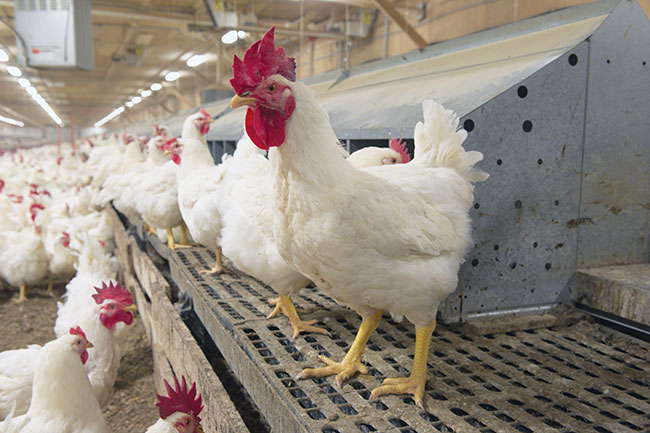
Cracking the hatching egg safety code
By Jane Robinson
Features Marketing BoardsCHEP celebrates two decades of its quality assurance initiative, CHEQ, with upgraded measures ensuring safe and high-quality hatching eggs.
 Mandatory Salmonella testing at the end of each flock cycle is one of the new hatching regulations now in effect for the Canadian Hatching Egg Quality program.
PHOTO: CHEP
Mandatory Salmonella testing at the end of each flock cycle is one of the new hatching regulations now in effect for the Canadian Hatching Egg Quality program.
PHOTO: CHEP This year marks an important milestone for Canada’s hatching egg sector when it comes to on-farm food safety practices. It’s the 20-year anniversary of the Canadian Hatching Egg Producers’ (CHEP) quality assurance program – Canadian Hatching Egg Quality (CHEQ). It’s also the year that new updates to the program are in place to ensure the sector keeps supplying safe and high-quality hatching eggs to the entire value chain.
Viki Sikur has been involved in on-farm food safety for her entire career at CHEP. As the national food safety officer, she was responsible for developing the initial CHEQ program in 2004, and ensures the program is kept up to date. CHEQ is managed by CHEP and implemented by provincial hatching egg boards across the country.
“When we started working on a quality assurance program, we were part of a larger Canadian approach about on-farm food safety, and there was a tremendous benefit to having a coordinated, common response to growing consumer demands around food safety,” Sikur says.
She’s particularly proud of the fact that CHEP’s program was developed by producers, for producers from the unique broiler hatching egg perspective, led by the HACCP Technical Committee and reviewed by the Canadian Food Inspection Agency (CFIA).
“Broiler breeders are very highly tuned birds that require a special kind of management to produce healthy, fertile eggs for the broiler sector,” she says. “The fact that we have created a program that is rigorous, technically sound and practical, is critical for compliance.”
New hatchery regulations
The biggest changes to CHEQ came into effect in November 2023 and were mostly related to new hatchery regulations required by CFIA. The changes didn’t come as a surprise for Sikur as they are components that their producers were already working towards.
“There is now mandatory Salmonella testing at the end of every flock cycle,” Sikur says. “Before this came into effect, all our member provinces had Salmonella enteritidis monitoring programs because we knew the regulation was coming, and so we were ready.”
The second change is the requirement that all producers implement a preventative control plan (PCP). For CHEQ and food safety that covers activities including biosecurity and pest control. “CHEQ already has components to address these two new requirements – testing and PCPs – because we saw these changes coming and did our homework,” Sikur says.
Producer-driven updates
As part of CHEQ’s commitment to continually improving its program, there were a few other changes to the program that have also taken effect, based on input and feedback from producers.
“We looked at biosecurity given the instances of highly pathogenic avian influenza over the last few years and clarified some requirements,” she says.
There were other requirement changes around water testing, medication usage and corrective action. And after 20 years, they updated some of the language for CHEQ to reflect technology changes, including the ability to demonstrate compliance with electronic farm records.
“We occupy a key point in the poultry supply chain, at the breeder level. Safety controls at our level is particularly important because our eggs hatch out and go on to become exponentially more broiler chicks,” says Sikur. “So, when we talk about pathogen control at the breeder level, it becomes that much more important down the line.”
CHEQing the boxes
Over the years, Sikur has put a lot of thought into the “what’s the benefit to me” for producers and the CHEQ program. “If we want to see progress in food safety for our sector, CHEQ is the way to do it,” she says.
- Rigorous, yet practical, requirements for on-farm food safety are vital for broiler breeders because of their position at the “start” of the poultry supply chain, and remove the need for additional programs.
- The documentation required in CHEQ for medication, pest control, etc., can reduce duplication, and better records can lead to better productivity.
- CHEQ is “our” program with a process in place to make improvements that reflect current science, industry practices and feedback from provincial boards.
Print this page